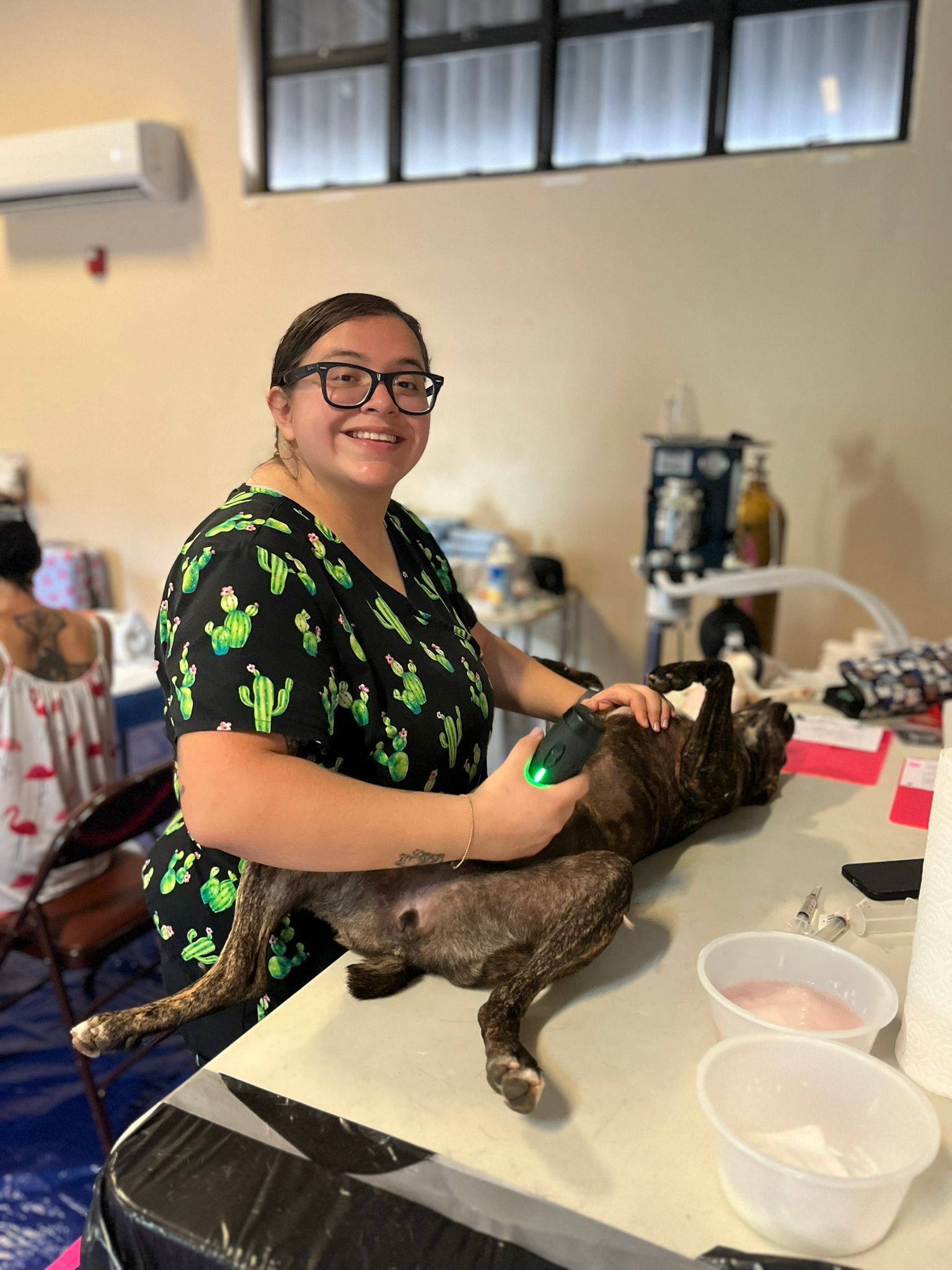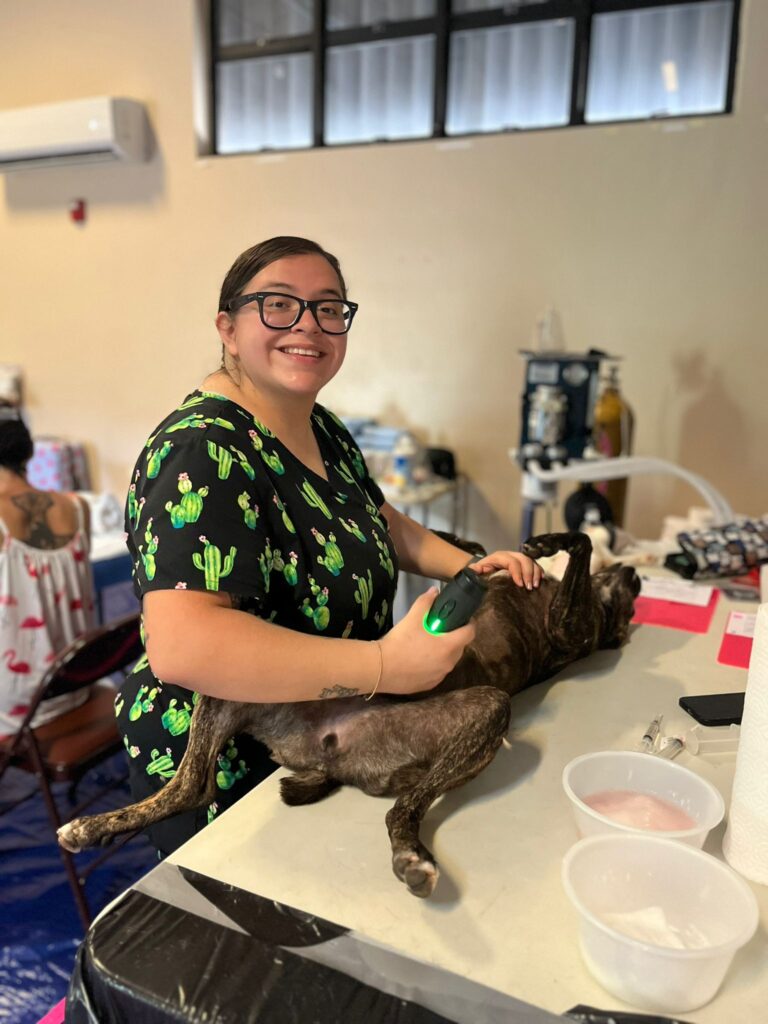
A Parker Project team member assists with a local pet at the Kagman Community Center on Saturday, Nov. 9. Visit www.saipanhumanesociety.org to register your pet for a surgery.
SAIPAN Humane Society reminds the community to sign up for an ongoing spay and neuter clinic at the Kagman Community Center.
Assisting in this spay/neuter clinic is the Parker Project, a nonprofit organization from the Navajo Nation. Visiting veterinarian Dr. Karter Neal and a team of nine from the Parker Project are on island to provide services.
The dogs and cats of Kagman residents, households with more than five pets, and community-owned or friendly stray animals qualify for free surgeries.
Parker Project members will go door-to-door in Kagman to deliver surgery vouchers for village residents.
Day 1 of the clinic was Nov. 9 and it will resume surgeries from Nov. 11-14.
So far, 32 pet surgeries have been performed, according to SHS Clinic Manager Ruby Ma.
To sign up for the clinic or for more information, visit www.saipanhumanesociety.org/.
For those unable to sign up online, walk-in spots will be available as capacity allows. SHS “strongly encourages” residents to sign up online as it guarantees an appointment.
The surgical fee is $40.
According to a media release for this clinic, SHS is “especially focused on ensuring spay/neuter services are accessible for Kagman residents and community-owned or friendly stray animals.”
Certain island residents may qualify for financial assistance. A free Seresto flea and tick collar courtesy of Banfield Foundation is available for certain qualifying customers as well. Contact info@saipanhumanesociety.org to see if you qualify for financial assistance or a Seresto collar.
In a past interview, Lauren Cabrera, SHS founder, said they are implementing a “Trap-Neuter-Return” or TNR program for community pets.
Via TNR, community-owned dogs will be safely captured, sterilized, vaccinated, and then returned to their territories.
“Community pets” are those stray animals that are “fed, cared for, and even sheltered by different members of the community, who collectively take on the responsibility of their well-being,” Cabrera said.
SHS said spaying or neutering pets helps them live longer, healthier lives by reducing the risk of cancers and infections, preventing unwanted litters, and addressing overpopulation of animals in the community.
“In the CNMI, overpopulation has negatively impacted coastal water quality, which can affect human health and damage our coral reef ecosystems. Feral cats can also cause injury and loss to native bird populations, which are essential to the CNMI’s biodiversity. Additionally, spaying/neutering stray animals can help prevent the ‘vacuum effect,’ a phenomenon where removing animals from an area leads to increased populations due to territorial shifts and breeding,” SHS said.











